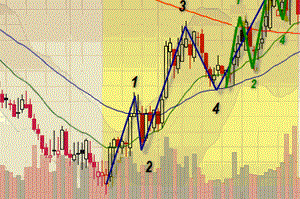Financial Statements From 2010 to 2025
Asset symbol is not found or was delisted
We are unable to locate this entity at this time. If you believe the symbol you are trying to look up is valid, please let us know, and we will check it out. Check all delisted instruments across multiple markets
Other Suggestions
| L | Loews Corp | Company |
| LANDP | Gladstone Land | Company |
| LDP | Cohen Steers Limited | Fund |
| LD | Barclays Capital | ETF |
| LOWN | NYSE New Lows | Index |
| L3 | Layer3 | Cryptocurrency |
| L626A6AA2 | MCBRAC 725 30 JUN 31 | Corporate Bond |
| LBUSD | Lumber Futures | Commodity |
A delisted stock, fund, ETF, or cryptocurrency is an instrument withdrawn from an exchange, typically due to the entity not meeting the exchange's listing requirements or because the organization has gone bankrupt. As a result, investors can no longer buy or sell shares of the delisted instrument on the exchange, and the entity may become illiquid and difficult to value. Delisted products may still trade on over-the-counter (OTC) markets,but they are typically considered riskier and less liquid than instruments listed on major exchanges.
Thematic Opportunities
Explore Investment Opportunities
Did you try this?
Run Options Analysis Now
Options AnalysisAnalyze and evaluate options and option chains as a potential hedge for your portfolios |
| All Next | Launch Module |
Trending Themes
If you are a self-driven investor, you will appreciate our idea-generating investing themes. Our themes help you align your investments inspirations with your core values and are essential building blocks of your portfolios. A typical investing theme is an unweighted collection of up to 20 funds, stocks, ETFs, or cryptocurrencies that are programmatically selected from a pull of equities with common characteristics such as industry and growth potential, volatility, or market segment. | Impulse Invested over 100 shares | |
 | Artificial Intelligence Invested few shares | |
 | Macroaxis Picks Invested few shares | |
 | Social Domain Invested few shares | |
 | Momentum Invested over 50 shares | |
 | Investor Favorites Invested over 300 shares | |
 | Macroaxis Index Invested few shares | |
 | Corona Opportunity Invested few shares | |
 | Driverless Cars Invested over 50 shares | |
 | Manufacturing Invested over 40 shares | |
 | Banking Invested over 30 shares | |
Check out your portfolio center.Note that this page's information should be used as a complementary analysis to find the right mix of equity instruments to add to your existing portfolios or create a brand new portfolio. You can also try the Theme Ratings module to determine theme ratings based on digital equity recommendations. Macroaxis theme ratings are based on combination of fundamental analysis and risk-adjusted market performance.
Other Complementary Tools
| Instant Ratings Determine any equity ratings based on digital recommendations. Macroaxis instant equity ratings are based on combination of fundamental analysis and risk-adjusted market performance | |
| Portfolio Optimization Compute new portfolio that will generate highest expected return given your specified tolerance for risk | |
| Investing Opportunities Build portfolios using our predefined set of ideas and optimize them against your investing preferences | |
| FinTech Suite Use AI to screen and filter profitable investment opportunities | |
| Portfolio Volatility Check portfolio volatility and analyze historical return density to properly model market risk |